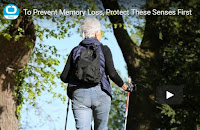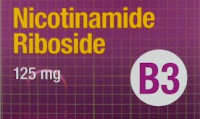
50% Less Memory Loss by Improving Sight & Hearing
See how hearing aids and cataract surgery slow memory loss and fight cognitive decline. Learn what vision & hearing interventions can do to fight dementia.

See how hearing aids and cataract surgery slow memory loss and fight cognitive decline. Learn what vision & hearing interventions can do to fight dementia.

Researchers know that some elderly patients have problems with cognitive function for weeks, sometimes months, following surgical procedures. Find out what the research reveals about this connection.

A global team of scientists has found by tracking the health of more than 31,000 adults through six longitudinal studies that treating high blood pressure with medication reduces the risk of dementia by 12 percent. It reduces the risk of developing Alzheimer’s disease even more – by 16 percent. Find out why.

A regular afternoon nap seemed to be associated with better cognitive performance in a study of healthy seniors living in China.

BETTER MEMORY AND BEHAVIOR, with reduced levels of Alzheimer’s tau, were achieved in the lab by supplementing drinking water with nicotinamide riboside, a form of vitamin B3. Learn what these important results mean to Alzheimer’s.

What if prevention of Alzheimer’s were as simple as controlling your breathing? Researchers at the University of California are exploring this question.

Got enough sunshine? Learn how sunshine seems to offer a bright, simple way to lower your risk of dementia.

Researchers found in a German study the Mediterranean diet — one rich in fish, vegetables and olive oil — can protect the brain from the development of protein deposits and loss of brain matter.

2 studies connect Alzheimer’s to concussions, and lighter blows to the head to memory loss. How careful can we be? Just how much does it matter?

More magnesium in our daily diet leads to better brain health as we age, according to scientists from the Neuroimaging and Brain Lab at The Australian National University (ANU).

CELEBRITY VIDEO + ARTICLE: Get the word out about Alzheimer’s & Brain Awareness Month. Raise awareness of the Alzheimer’s crisis, educate people on its realities, and help people live well with dementia.

[Father’s Day is June 15]
This bride’s father has dementia. On her wedding day, she triggers his memory with an activity they shared in her childhood. See what happens.

Lecanemab (marketed as Leqembi) is today’s top Alzheimer’s drug. Why does equitable access to this drug remain a significant challenge? What needs to be done?

SHORT-TERM MEMORY lapses are obvious signs of Alzheimer’s, but other tell-tale signals begin to show much earlier. Learn how to look for semantic impairments, such as simple questions about size.

Three important dementia studies focus on HS-AGING, a type of dementia almost as common as Alzheimer’s in the 85+ group. Yet few people have heard of it. Why? What makes it different?

An intriguing study of 120 grandmothers might surprise you. Doctors know socially engaged people have better cognition and less dementia. But can a person get too much of a good thing? What’s the right balance?

Enjoy this great duet between a musician with dementia and his son. A triumph of spirit over Alzheimer’s! Sing-a-long if you like!
No spam, only news and updates.


